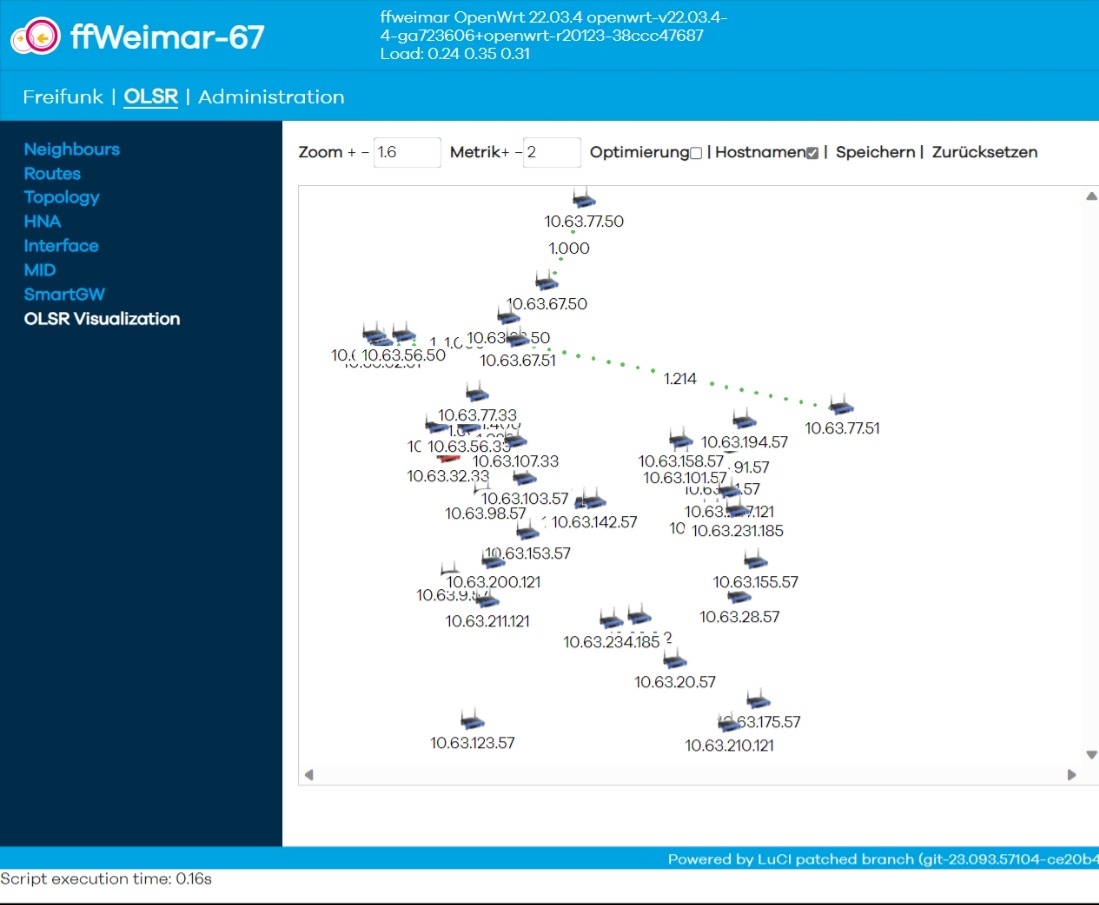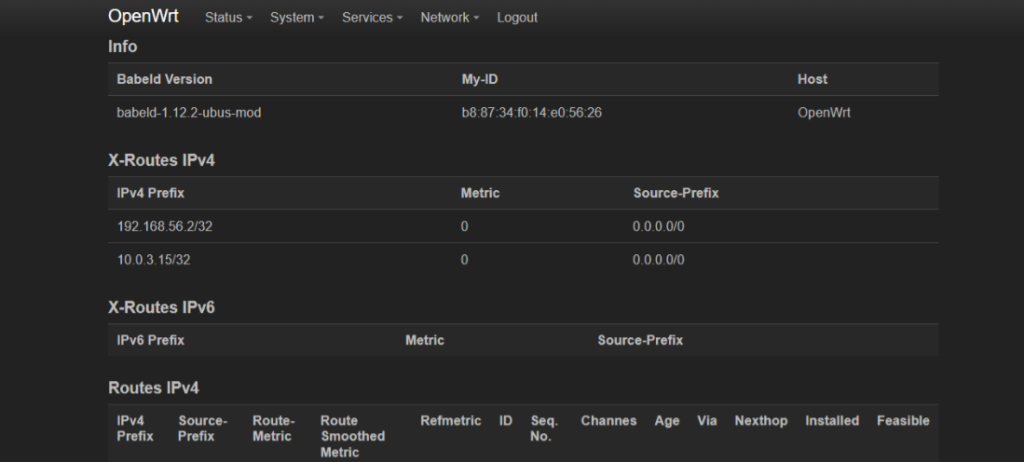Hello!
I’ve had a wonderful and enriching experience over the last 5 months while working on my Google Summer of Code Project, “LuCI Migration to JavaScript-Based Framework.” As Google Summer of Code 2023@Freifunk draws to a close, I am excited to announce the successful completion of my project, which involved migrating several LuCI apps to JavaScript. I wish to extend my sincere gratitude to my mentor, Andreas Bräu. His constant support and guidance have been extremely helpful.

Project Goals
LuCI is an open-source framework that is widely used to build web interfaces for embedded devices such as WiFi routers. In the CBI-based old system, pages were rendered on the router and delivered as HTML to the browser, which caused a higher load on the embedded devices. This makes the system less efficient and can lead to performance issues.
The latest OpenWRT versions introduced a new web interface system that eliminated the need for Lua. Instead, the client’s browser handles the rendering and computation, allowing routers to focus on their primary tasks. This change has the advantage of eliminating the Lua runtime, saving storage space, and having faster routers. In the previous CBI-based system, pages were rendered on the router and sent as HTML to the browser, increasing the load on the routers. This inefficiency can result in performance problems. To aid in this transition, LuCI offers the LuCI-JavaScript API, which is now utilized for constructing web interfaces.
Project Results
As part of the project, I accomplished the successful migration of the following apps to JavaScript:
- luci-app-olsr (OLSR configuration and status module)
- luci-app-uhttpd (OLSR configuration and status module)
- luci-app-olsr-viz (OLSR Visualization)
- luci-app-babeld (LuCI support for babeld)
- luci-app-mjpg-streamer (MJPG-Streamer service configuration module)
The migration of luci-app-olsr stood out as an incredibly exciting and valuable learning experience. Notably, this application now boasts a performance improvement of four to five times compared to its previous version. I also created a comprehensive tutorial based on the migration process of luci-app-olsr, which can serve as a valuable reference for writing or migrating other LuCI apps.
The tutorial covers the essential aspects of the process, providing a comprehensive guide. This app is an extensive application that includes both status views and an admin backend.
Below is the tree view representation of the directory structure for the app:

Explore My Contributions
My work can be located within the following commits, and all reviewed applications have been merged. These will soon be accessible to users in the upcoming OpenWRT releases.
- luci-app-olsr: migrate to js
- luci-app-olsr-viz: migrate to js
- luci-app-mjpg-streamer: migrate to js
- luci-app-babeld: migrate to js
- luci-app-uhttpd: migrate to js
- Migrating LuCI Apps to JavaScript: A Comprehensive Guide
- LuCI Migrate to JavaScript-Based Framework


What Next
While the work has been carried out within the scope of GSoC, I am committed to continuing the migration of additional apps to JavaScript even after the program’s conclusion. I will maintain an active presence in the community and actively seek out intriguing projects to contribute to.
Wrapping Up

Following the migration of these commonly used apps in LuCI, a significant enhancement in performance has been achieved. Project objectives have been successfully met, leading to reduced router workload and an improved user experience, particularly for those with lower-specification routers. The new system also offers increased developer flexibility. Leveraging a client-side JavaScript framework provides developers with versatile options for future customization and extension of the LuCI web interface.
This shift establishes a standardized approach for developers to interact with router services, configure data retrieval, and support the development and maintenance of LuCI-based applications. Such advancements are particularly valuable for community networks reliant on lower-spec devices. The heightened performance and decreased device load simplify network management, bolstering the efficacy of LuCI-based tools. In summary, the migration of LuCI to JavaScript yielded substantial benefits for the OpenWrt community and users. These include improved performance, elevated developer adaptability, and potentially streamlined management of LuCI-based applications within community networks.
My engagement in this project was a source of enjoyment and knowledge, and though it demanded significant efforts, I found enjoyment in the process. and I extend special appreciation to my mentor for his unwavering support and motivation. GSoC 2023 with Freifunk has proven to be an enriching experience. My path ahead involves contributing to additional open-source projects, further app migrations to JavaScript.